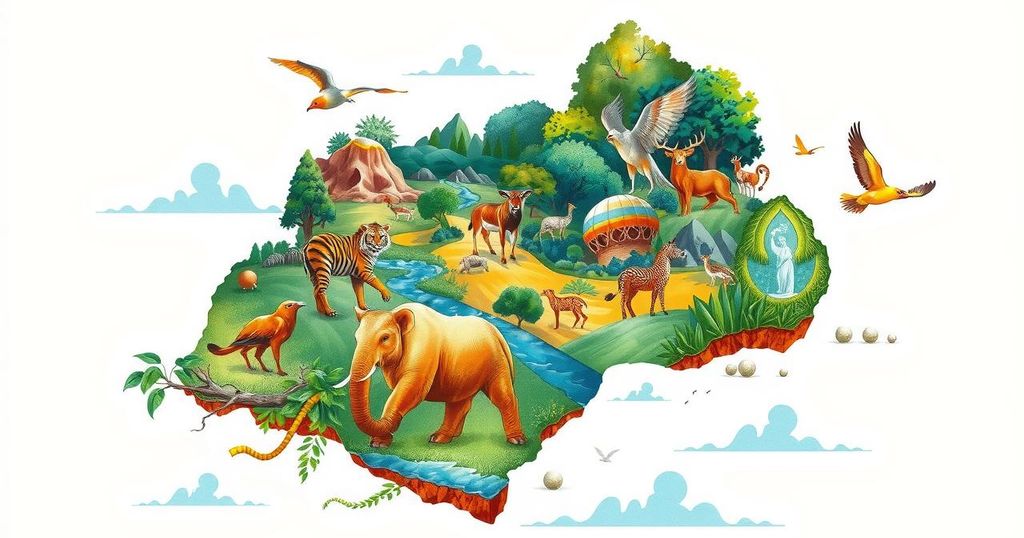Lifestyle
ACCIDENTS, AFRICA, DALLAS, DEMOCRATIC REPUBLIC OF THE CONGO, DISEASE, DISEASE OUTBREAK, DRC, FAMILY LEGACY, HEALTH, KAMPALA, KAUFMAN, KAUFMAN COUNTY, NORTH AMERICA, NTOROKO, PUBLIC HEALTH, T HE WHO, TEXAS, TEXAS PARKS AND WILDLIFE DEPARTMENT, TPWD, UGANDA, UNITED STATES, WAKISO, WHO, WORLD HEALTH ORGANIZATION
Marisol Gonzalez
0 Comments
WHO Reports on Uganda’s Ebola Cluster and CWD Discovery in Texas
The WHO reported on March 8 concerning a second cluster of Ebola Sudan cases in Uganda, which includes three confirmed cases linked to a deceased child. In Texas, CWD has been found in a deer farm for the first time, prompting quarantine measures. Additionally, a study identifies a correlation between sleep debt among nurses and increased susceptibility to infections.
The World Health Organization (WHO) has reported new developments regarding a second cluster of Ebola Sudan cases in Uganda. This update, dated March 8, highlights three confirmed and two probable cases connected to a four-year-old child, deemed the tenth case, who succumbed to the virus on February 25. The virus’s transmission remains a concern, prompting increased surveillance efforts.
The deceased child’s mother and newborn also passed away during this outbreak, with the mother reportedly showing symptoms beginning January 22 and dying on January 6. Both of these fatalities were untested and classified as probable cases due to undetermined illnesses. Their deaths and subsequent burials lacked supervision, according to WHO.
In addition to the confirmed cases, the WHO has traced new contacts—192 individuals identified since March 2—across various regions including Kampala and Wakiso districts. The outbreak marks the sixth instance of Ebola Sudan in Uganda, with the current case fatality rate reported at 29%, which is lower when compared to prior outbreaks.
In another development, Cowboy County in Texas has identified the first occurrence of Chronic Wasting Disease (CWD) within a deer farm, affecting two white-tailed deer. The Texas Parks and Wildlife Department (TPWD) confirmed this finding, resulting in immediate quarantine measures to mitigate the disease’s spread. Strict testing protocols mandate that all deer farms conduct ante-mortem testing and mortality tests.
CWD has been a persistent issue since its initial detection in Colorado in 1967. The disease is caused by prions, which are misfolded proteins that can transmit between cervids and survive in the environment for extended periods. Texas has recorded CWD cases in both captive and free-ranging populations of deer and elk across its territory since its first discovery in the state.
Furthermore, a recent study conducted by researchers at Haukeland University Hospital in Bergen, Norway, has established a correlation among sleep debt, night work, and an increased risk of respiratory infections among nurses. The study, involving 1,335 Norwegian nurses, highlights severe sleep deprivation’s association with a heightened susceptibility to not only the common cold but also pneumonia and gastrointestinal issues, marking a significant occupational health concern.
The latest reports from the WHO underscore the ongoing challenges presented by the Ebola Sudan outbreak in Uganda, particularly regarding surveillance and management of new cases. Concurrently, the emergence of CWD in Texas reflects the continual threat posed by wildlife diseases to both the environment and agricultural sectors. Additionally, the health risks linked to sleep debt among healthcare professionals highlight the necessity of addressing occupational health conditions to safeguard worker well-being. Collectively, these issues illustrate the interconnected nature of health crises across various domains.
Original Source: www.cidrap.umn.edu




Post Comment